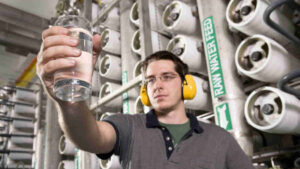Water: Phoslock gets a $2m Brazilian butt lift

Not content with the world’s most populous country, waterways treatment company Phoslock (ASX:PET) has won a contract in the most populous country in Latin America.
Phoslock received a $2m contract from water and sewage utility Cia Estadual de Águas e Esgotos SA (CEDAE) to treat one of Rio de Janeiro city’s main drinking reservoirs.
The company has already started work, which will continue for the next three months.
Phoslock sells large-scale water cleaning tech that permanently binds excess phosphorus in water, a key pollutant in waterways that is caused by human and animal waste, industrial effluents, and fertiliser runoff, among other things.
The company’s largest projects are in China, the latest being the second biggest downtown water course in Wuhan City, a 3,362-hectare (34sqkm) lake in the Yangtze River Basin.
That’s the equivalent of two-thirds of Sydney Harbour.
It said at the end of January the application and engineering teams had completed the first Phoslock applications in Wuhan in September and October 2019, and further applications are scheduled for April and May 2020.
Prior to that contract win, Phoslock’s largest project was the 34sqkm Xingyun Lake in Yunnan Province to the south in May 2019, which was extended in July to include the 371sqkm catchment area for the lake of 14 rivers, waterways and reservoirs.
Phoslock made full year revenue for $25.1m in the year to December 31, up 53 per cent on FY2018, and stands by guidance for 2020 of $50-70m.
It has a current project pipeline now totals some $380m, of which $250m comes from China.
In other news:
Last week Fluence (ASX:FLC) said it had taken precautionary measures around coronavirus for its China staff, but bookings for its water treatment equipment and revenue from the initial weeks of 2020 have not been negatively affected. It said coronavirus “is known to be partially transmitted through contaminated sewage” so it “stands ready and able to assist its local partners”.
Purifloh (ASX:PO3) is still researching its water sterilisation technology but is moving more into air purification, the device that encouraged American businessman Bill Parfet to pay $9.6 million for 4 million Purifloh shares at $2.40 a pop.
UNLOCK INSIGHTS
Discover the untold stories of emerging ASX stocks.
Daily news and expert analysis, it's free to subscribe.
By proceeding, you confirm you understand that we handle personal information in accordance with our Privacy Policy.








